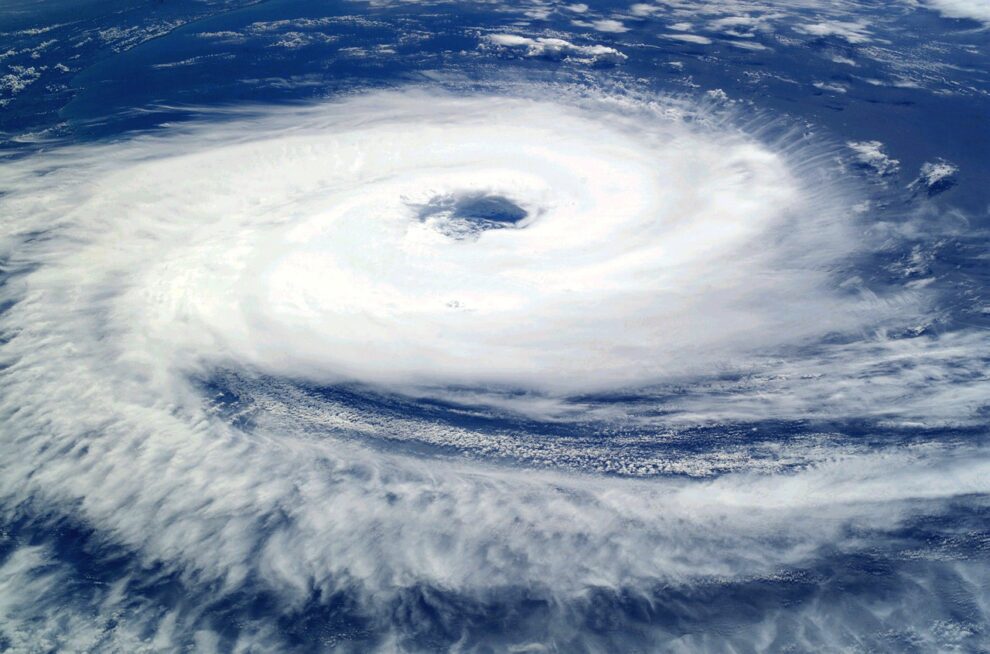States across the typically arid US southwest braced on Sunday for torrential rain and potentially life-threatening flooding, as Hurricane Hilary barreled up Mexico’s coast, where authorities reported at least one fatality.
At its peak, the storm reached a Category 4 on the five-step Saffir-Simpson scale, but is expected to weaken to a tropical storm before reaching southern California on Sunday afternoon, an advisory from the US National Hurricane Center (NHC) said.
It was still packing nearly 85 miles per hour (140 kilometers per hour) sustained winds with stronger gusts as it blew across the Baja California Peninsula early Sunday morning, the NHC said.
“Heavy rains from Hilary spreading northward over the Baja Peninsula and the southwestern United States,” the US government agency said. “Catastrophic and life-threatening flooding likely.”
One person died in Mexico after a vehicle was swept away by a rising stream, Mexico’s Civil Protection agency said in a statement on Saturday, while warning of landslides and road closures on the Baja California Peninsula.
Hilary is expected to track inland and north over the next day or two, depositing up to 10 inches of rain on parts of Mexico, California and Nevada, according to the NHC.
Tornadoes were also on the cards from mid-morning through Sunday evening in parts of the Colorado River Valley, Mojave Desert and Imperial Valley.
Despite slowing down, the storm remains treacherous, with millions of people urged to take precautions.
The US Federal Emergency Management Agency (FEMA) has deployed teams to areas in Hilary’s path, while California Governor Gavin Newsom declared a state of emergency for much of the state’s southern area.
Nancy Ward, director of the California Governor’s Office of Emergency Services, said Hilary could be one of the worst storms to hit the state in more than a decade.
“Make no mistake,” she told a press conference Saturday. “This is a very, very dangerous and significant storm.”
– ‘Waiting for the weather’ –
As large waves crashed ashore and winds lashed the Mexican tourist resort of Cabo San Lucas on Saturday, residents and workers put up protective boarding and laid thousands of sandbags.
Military personnel were seen patrolling the beach, a popular destination for both Mexican and foreign tourists.
“We took all the precautionary measures last night,” Omar Olvera told AFP at the Cabo San Lucas beachfront restaurant where he works.
With sandbags piled protectively around the restaurant, he said, “We’re just looking out for the workers and waiting for the weather to come.”
Streets in the town of Todos Santos, on the west coast of the peninsula, were largely deserted Saturday while the nearby beach in Los Cerritos was closed due to rough waves.
“Last night, we felt the wind picking up, it wasn’t as strong as we were expecting but it still caused us to worry,” said Marco Segura, a 57-year-old worker in Los Cerritos.
The Mexican government deployed almost 19,000 soldiers in the states most affected by the storm, while the federal electric utility has sent 800 workers and hundreds of vehicles to respond to any outages.
US President Joe Biden, who was at a rented vacation home with his family on Lake Tahoe along the California-Nevada border, was briefed Saturday by senior staff on preparations for the storm, the White House said.
Biden and his wife, First Lady Jill Biden, are planning to visit Hawaii on Monday to survey wildfire damage as recovery operations continue.
In San Diego, the US Navy said ships and submarines would be heading out to sea on Saturday ahead of the storm’s arrival.
“Safety remains our top priority, and putting all capable ships to sea makes it easier for us to manage the situation ashore,” said US Third Fleet commander Michael Boyle in a press release.
Major League Baseball and Major League Soccer have rescheduled games planned for Sunday in the US region.
Hurricanes hit Mexico every year on both its Pacific and Atlantic coasts. Although the storms sometimes affect California, it is rare for cyclones to strike the state with much intensity.
Scientists have warned that storms are becoming more powerful as the world gets warmer with climate change.
